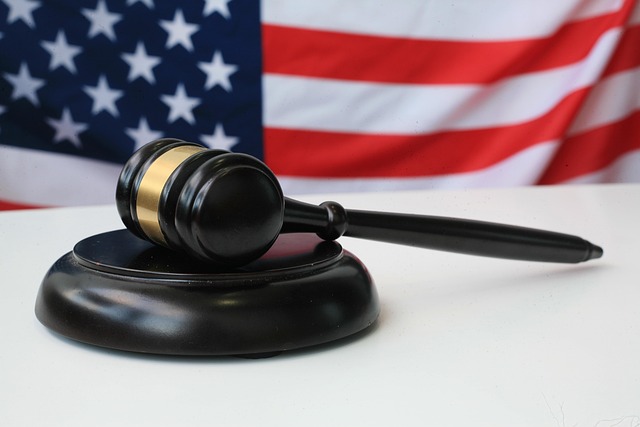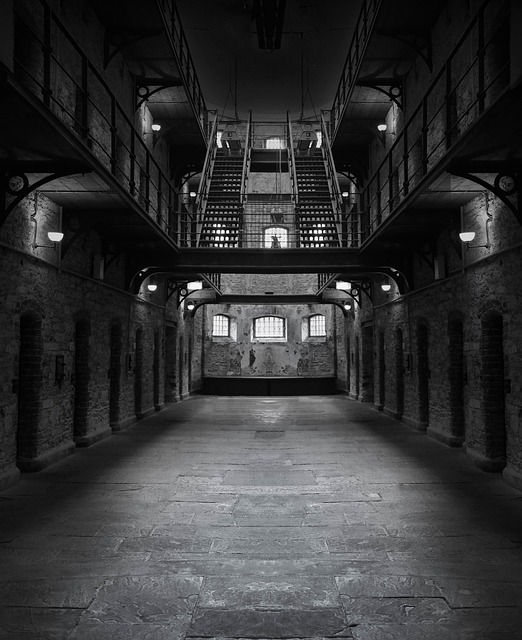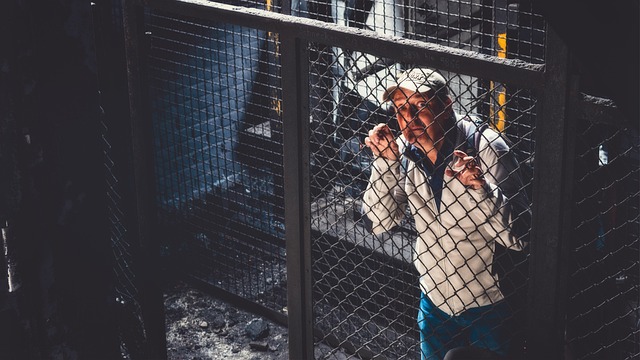Commercial drivers face stringent DUI laws with enhanced penalties due to operating large vehicles. To enhance safety and compliance, tech solutions like integrated breathalyzer devices and real-time monitoring apps are becoming essential. These include Advanced Driver-Assistance Systems (ADAS) and portable breathalyzers, which help maintain focus, deter intoxication, and support regulatory compliance. Emerging trends include in-cab sensors for impairment detection and autonomous driving technology. Case studies show that advanced tech solutions aid commercial driver DUI defenses by refuting impairment claims and exposing procedural inconsistencies.
“In the realm of commercial transportation, a Commercial Driver DUI (Driving Under the Influence) can have severe repercussions. This article explores the unique challenges posed by these cases, delving into understanding stringent regulations, and highlighting the pivotal role of technology in prevention. From advanced alcohol detection systems to innovative tech-assisted defense strategies, we uncover solutions aimed at keeping commercial drivers and roads safe. Moreover, we glance into future trends, where technological breakthroughs promise to revolutionize Commercial Driver DUI prevention.”
- Understanding Commercial Driver DUI Laws and Regulations
- The Role of Technology in Preventing Impaired Driving
- Advanced Alcohol Detection Systems for Commercial Vehicles
- Case Studies: Successful Tech-Assisted DUI Defense Strategies
- Future Trends: Innovations in Commercial Driver Safety and DUI Prevention
Understanding Commercial Driver DUI Laws and Regulations

Commercial drivers operate vehicles that are subject to stringent regulations, including strict laws regarding impairment while behind the wheel. Understanding Commercial Driver DUI (Driving Under the Influence) laws and regulations is crucial for anyone in this industry. These laws not only differ from state to state but also come with enhanced penalties due to the potential risks associated with large vehicles. Tech solutions for impaired driving are becoming increasingly vital, offering advanced tools to aid in detection and deterrence. From sophisticated breathalyzer devices integrated into vehicle systems to real-time monitoring apps, these innovations aim to enhance safety and compliance.
Commercial drivers must be aware of the legal blood alcohol limits, often stricter than those for regular drivers, and the potential consequences of violation. Regular training on safe operating practices and impairment recognition is essential. Additionally, staying informed about updates in regulations and leveraging tech solutions can significantly benefit commercial drivers, ensuring they remain compliant and safe on the roads.
The Role of Technology in Preventing Impaired Driving

In the ongoing battle against impaired driving, technology has emerged as a powerful ally. Innovative tech solutions for impaired driving are continually being developed to prevent and mitigate this significant road safety concern. From advanced driver-assistance systems (ADAS) to sophisticated breathalyzer devices, these tools play a pivotal role in keeping roads safer for everyone.
For instance, ADAS features like lane departure warning systems, automatic emergency braking, and adaptive cruise control can help commercial drivers maintain focus and avoid distractions that may lead to impaired judgment. Additionally, portable and accurate breathalyzer tests enable quick and efficient alcohol screening at various checkpoints, deterring drivers from operating heavy machinery under the influence. These tech solutions for impaired driving not only enhance safety but also promote compliance with strict driving laws aimed at reducing accidents caused by alcohol or drug intoxication.
Advanced Alcohol Detection Systems for Commercial Vehicles

In response to the growing need for safer commercial driving, tech solutions for impaired driving have emerged, including advanced alcohol detection systems. These cutting-edge technologies are designed to prevent and detect drunk driving among professional drivers, who face heightened scrutiny due to the risks they pose when operating large vehicles. Sensors and breath analysis tools are being integrated into vehicle systems, providing real-time data on driver sobriety levels. This proactive approach not only ensures the safety of passengers, pedestrians, and fellow motorists but also helps commercial drivers navigate legal complexities surrounding DUI charges, offering a stronger defense with the aid of these tech solutions.
The implementation of such alcohol detection systems is part of a broader shift towards smarter transportation infrastructure. By utilizing tech solutions for impaired driving, governments and trucking companies can collaborate to create more robust safety measures. This collaboration results in reduced accidents caused by drunk driving, fewer DUI-related convictions, and ultimately, a more secure road environment for all users. These innovative technologies are reshaping the landscape of commercial driving, making it safer and more accountable than ever before.
Case Studies: Successful Tech-Assisted DUI Defense Strategies

In today’s digital era, tech solutions for impaired driving have emerged as powerful tools for Commercial Driver DUI Defense. Case studies demonstrate that innovative strategies utilizing advanced technology can significantly enhance defense outcomes. For instance, real-time tracking devices and GPS data have been instrumental in refuting allegations of impairment by showing consistent and safe driving patterns. Additionally, sophisticated breathalyzer analysis software can identify potential discrepancies in testing procedures, undermining the credibility of prosecution evidence.
Furthermore, expert witnesses equipped with advanced simulation tools are able to present compelling arguments about driver behavior under the influence. These simulations, based on data from thousands of cases, offer nuanced insights into how impairment affects driving skills—weakening the prosecution’s case and strengthening the defense strategy. Tech-assisted defenses not only level the playing field but also ensure that commercial drivers receive a fair trial, balanced with the latest scientific advancements in impaired driving detection.
Future Trends: Innovations in Commercial Driver Safety and DUI Prevention

The future of commercial driver safety and DUI (driving under the influence) prevention is being shaped by innovative tech solutions designed to keep roads safer. Advanced driver assistance systems (ADAS) are increasingly integrated into trucks, providing real-time data on vehicle performance, tire pressure, and driver behavior. These technologies can detect signs of impairment earlier, alerting fleet managers or authorities when a driver’s performance falls below acceptable standards.
One promising trend is the development of in-cab sensors that monitor drivers’ vital signs, including heart rate and pupil dilation, to identify potential impairment. Additionally, autonomous driving technology promises to revolutionize transport by reducing human error, though it also raises questions about regulatory frameworks and liability when accidents occur. As tech solutions for impaired driving evolve, so too will the need for specialized DUI defense strategies tailored to commercial drivers, ensuring that safety innovations complement rather than undermine legal protections.
The evolving landscape of commercial driver safety, shaped by advancements in technology, offers promising solutions to combat impaired driving. By leveraging innovative tools like advanced alcohol detection systems and tech-assisted defense strategies, legal professionals can navigate the complex realm of Commercial Driver DUI (CDUI) cases effectively. These tech solutions for impaired driving not only ensure compliance with stringent regulations but also foster a safer transportation network. As we look ahead, ongoing research and development in CDUI prevention will continue to revolutionize safety protocols, ultimately reducing risks and enhancing justice.






